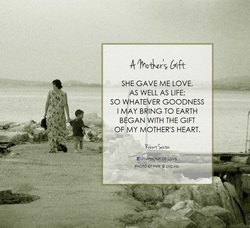Genre-colored glasses |
|
Thoughts on genre, language, grammar, and other
rhetorical and linguistic norms |
Genre-colored glasses |
|
Thoughts on genre, language, grammar, and other
rhetorical and linguistic norms |
|
I've been writing my blog for enough years now that it has become both rich with topics and potentially hard to find what you're most interested in. So I've pinned this post to the top of my blog (well, through a fake future date workaround since Weebly doesn't yet let me pin a post). I hope it gives you some guidance to what I write about, what you might be interested in, and where you might find it. Of course, you can always start by using the Search box in the sidebar on a topic you're interested in. Check out syllabus! Apologies! Hallmark Christmas movies! Even searching a large topic like "rhetoric" will generate a good list of posts about things that matter.
I thought I’d give an orientation to what has become a full archive of posts and highlight a few that other readers have let me know they especially liked. If you’re a long-time reader, thank you! And feel free to add suggestions of what you think others might enjoy reading. What's Here I write about rhetoric, language and genre—the kinds of everyday reading and writing we all do and how they shape us and our worlds. A few posts explain the idea of genre, for those of you who want some overview of the idea. Check out the Psychology of Genre, one of my first posts, or Genre in two pictures, or Genre Matters (aka Using Genres to Make Hatred Normal) I’ve been writing this blog seriously since May 2016, and I wrote weekly for two years (more sporadically after that), so there’s a lot to sort through. Here are a few ways:
I’ve written more than one article on some topics, and some have told me they’ve liked those. Here are a couple of ideas. Apologies I’ve written 4 posts on good and bad apologies, starting with Harriet Lerner’s great work on what makes a good apology. It’s much easier to find examples of bad apologies, as I learned at my dentist’s office and watching public figures and businesses mess up saying “I’m sorry.” (Remember the United Airlines CEO after dragging a man off their plane? Now that was a bad apology.) I wrote on what makes a good “thank you,” too, but that turns out to be much easier for people to do. Less humiliating, I imagine, to thank someone than to admit you screwed up. Holidays I’ve written about lots of holidays over the years, from New Year’s to Christmas and all in between, including Veterans Day, Labor Day, Father’s Day, Thanksgiving, and even April Fools’ Day (where the genre requires us to lie!). I tried an audio blog for Halloween one year, if you want to hear my voice. My most recent holiday post, I think, and one I'm proud of is my post on Armistice Day And Other Matters As a teacher, I’ve written about the syllabus in a few ways, and you who are teachers or scholars might find other topics of interest (on the word "essay," "commencement"--or is it "graduation"?). Since I also write about language and why genres matter, the blog has hit on lots of ways we live in our worlds through language and communication, especially how words matter. Some serious political and social topics following current events, but also laughing with Amy Schumer's sitcom parody or playing with Super Bowl ads. But Wait, There’s More! Since it is KU's story that prompted this post and it is March Madness time, I have to highlight my post on how I watch KU men’s basketball games through both my fanaticism and my genre-colored glasses. I ran through over 20 genres that make up my own watch party crowd’s way of watching KU play in 2018. So that’s enough for now. If you'd like me to email you whenever I post something new, please feel free to sign up for my newsletter (see it in the sidebar). I hope you can find something to spark your interest or show you old habits in new ways. Thank you for reading today
4 Comments
The title of this blog comes from a comment a colleague made many years ago, that I see the world through genre-colored glasses. He was right, and he’s still right. Once I started studying the effects of genres on our language and writing, I saw those effects everywhere. As I hope to explore with everyday examples in this blog, genre shapes what we do, and what we think to do, but not necessarily what we can do.  Photo Credit: www.sxc.hu/photo/33876 https://creativecommons.org/licenses/by/2.0/ Photo Credit: www.sxc.hu/photo/33876 https://creativecommons.org/licenses/by/2.0/ When I go to buy a Mother’s Day card for my mother, I’m limited by the cards in the shop, their pictures and sentiments of moms as warm and supportive, and aware that they don’t fit my mom. But I’m buying a card because that’s what I’ve learned people do for Mother’s Day. So I either buy a card that doesn’t quite fit or skip that genre and write a letter or note instead. I’ll write a fuller post on my experiences buying Mother’s Day cards later. It’s a good one, for me, for showing how genres shape what we do in ways that might not exactly suit us. And what we can do about it, once we notice.  Sean Hoyer marriage equality = human rights (14527) https://creativecommons.org/licenses/by-nc-nd/2.0/ Sean Hoyer marriage equality = human rights (14527) https://creativecommons.org/licenses/by-nc-nd/2.0/ But genre isn’t the only lens through which I see the world. Language, more broadly, also encourages us to see some things and not others. And it reflects who we are. Our families, our homes, our identities, and our cultures all show up in the language we use and our attitudes toward the language others use. When my family moved from Colorado to Oklahoma for two years when I was seven, kids made fun of me for talking too fast and for saying words funny like “ahnt” instead of “ant” for aunt. Today, people express their opinions about “religious freedom” or “marriage rights,” and the choice of terms says something about their beliefs. So language, too, is a topic I’ll write about, especially as it reveals our society. Because I teach and study writing—and because I grew up in the late 60s in the US, a peace-and-love child with a strong (middle child?) sense of fairness and justice—I’ve always been especially aware of the effects of norms on people, how the people who follow them tend to get power and prestige while those who either can’t or won’t follow the norm struggle to get by in our worlds. So I care passionately about teaching people to write, and I believe strongly in their understanding the power of norms to help or hinder their success as writers, and I study those norms so I can show them to people and let them decide what norms to follow and what to defy or change. That’s why grammar and Standardized Edited English and genre as constraint will also pop up in this blog. Not to preach about them, but to notice them. I might as well confess upfront that I’m a bit of a grammar nerd. I love grammar jokes (I love all corny jokes, I’m afraid, like the ones that come in Bazooka gum wrappers). I love spotting published writers not using “proper grammar,” not to chide them but to demonstrate the rich variety of English. I love knowing what “the rules” of “correct grammar” are—and knowing as a linguist why all those phrases have to go in quotation marks. So I’ll write in this blog about all those things that I notice. My glasses are pretty heavily covered now by genre, language, grammar, norms, rhetoric, fairness. But I find it a pretty interesting way to view the world. I hope you do, too, and I hope your comments and responses will help me expand what I see.
|
Author
|